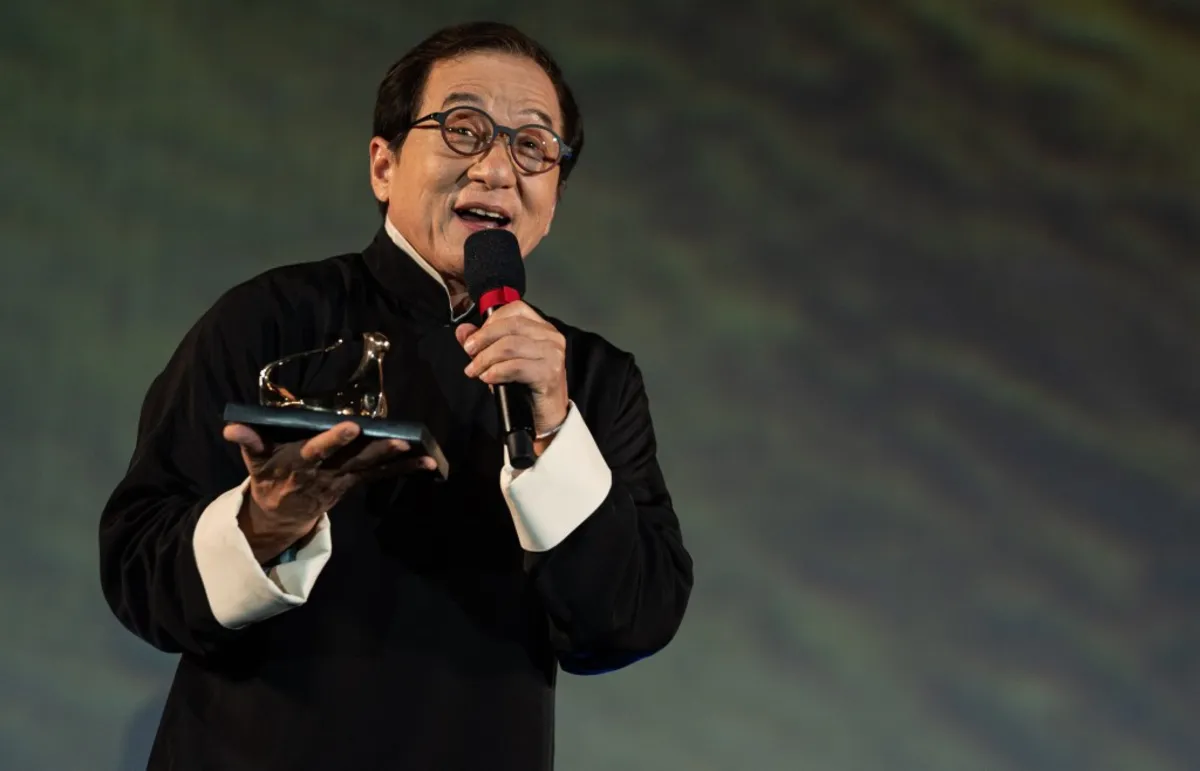
During a recent Q&A session at the Locarno Film Festival, renowned martial artist and actor Jackie Chan expressed his concerns regarding the current state of filmmaking in Hollywood. He emphasized that major studios are increasingly focused on profit, which he believes stifles the artistic integrity of contemporary films. “I think the old movies are better than today,” Chan remarked, highlighting a growing sentiment among filmmakers and audiences alike.
Chan elaborated on his perspective, stating, “Right now, a lot of big studios, they’re not filmmakers, they’re business guys. They invest 40 million and think, ‘How can I get it back?’” This business-first mentality, he argued, makes it exceedingly challenging to produce a quality film. His candid reflections resonate with many who feel that the art of filmmaking is compromised by financial considerations.
In his engaging discussion with Giona Nazzaro, the head of the Locarno Film Festival, Chan shared captivating anecdotes about his extensive career. From his humble beginnings to his experiences in Hollywood, he provided insight into the meticulous process behind his most dangerous stunts. Chan's commitment to the craft of cinema was a recurring theme, particularly how he dedicated himself to mastering every role on a film set, including stunt direction, acting, and sound design.
In a humorous moment, Chan pointed out that in all of Asia, only two individuals possess the versatile skill set to handle every aspect of filmmaking: himself and Sammo Hung. “And I’m better because I know how to sing,” he joked, showcasing his multifaceted talents beyond just action and stunts.
Chan also reflected on his decision to expand his career horizons by learning how to sing. He noted that after a series of performances on late-night U.S. talk shows where he demonstrated his fighting skills, he realized the limitations of being solely a stunt performer. “I cannot do this forever. It’s just so dangerous,” he recalled. This realization prompted him to pivot his focus, with the aspiration to become “the Asian Robert De Niro,” emphasizing his desire for a long-lasting and diverse career.
Despite his aspirations, Chan faced challenges in Hollywood, particularly in the early 2000s, where he struggled to connect with American audiences and was dissatisfied with the scripts he was offered. He reflected on his determination to give Hollywood one last chance with the film Rush Hour, stating, “If it doesn’t succeed, then I finish.” He acknowledged the film's production challenges, including budget constraints and limited action space, but insisted that it marked a significant turning point. “I think Rush Hour changed the culture,” Chan asserted, underlining its impact on cross-cultural cinema.
Jackie Chan's visit to the Locarno Film Festival was not only to share his insights but also to receive the prestigious Pardo alla Carriera award for his outstanding contributions to the film industry. His early directorial works, including Project A and Police Story, were screened at the festival, further celebrating his legacy in the realm of cinema. The festival concluded on August 16, marking an unforgettable event in Chan's illustrious career.